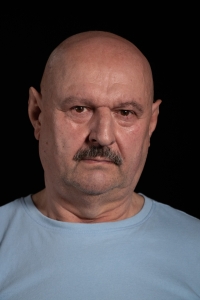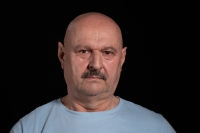If we are afraid, we will be afraid all our lives. One day we should end it

Download image
Milan Jaroš was born on 24 December 1951 in Nové Město na Moravě. The communist coup in 1948 and the subsequent collectivization deprived his family of their house with its workshops and sawmill. His father, Václav Jaroš, was imprisoned for six months after the confiscation of the house because in anger he destroyed a photograph of Klement Gottwald in a pub. At the age of sixteen, Milan experienced first-hand the invasion of Prague by Warsaw Pact troops when he was staying there with his aunt on holiday. He co-organised the first protest event called for 21 August 1968 at five o’clock in the morning. He distributed leaflets, discussed with the occupiers and on 24 August he was shot by one of the soldiers, fortunately he escaped with a scratch on his arm. In 1971 he trained as a radio-television repairman and continued to work in Žďár nad Sázavou. During the normalisation years he used to play basketball for ŽĎAS Žďár nad Sázavou team, which played in the second league. In November 1989, he participated in demonstrations in Nové Město na Moravě and showed footage of the Prague demonstrations in the local culture centre. In the 1990s he started a business and the family farm was returned to him and his sisters. In 2022, he was living near Golčov Jeníkov.

